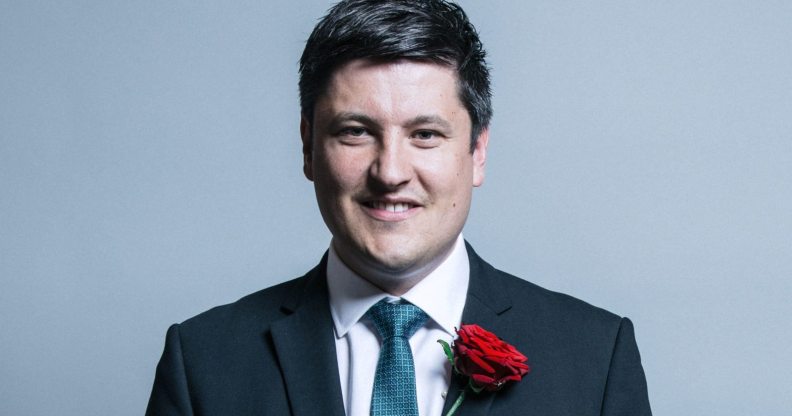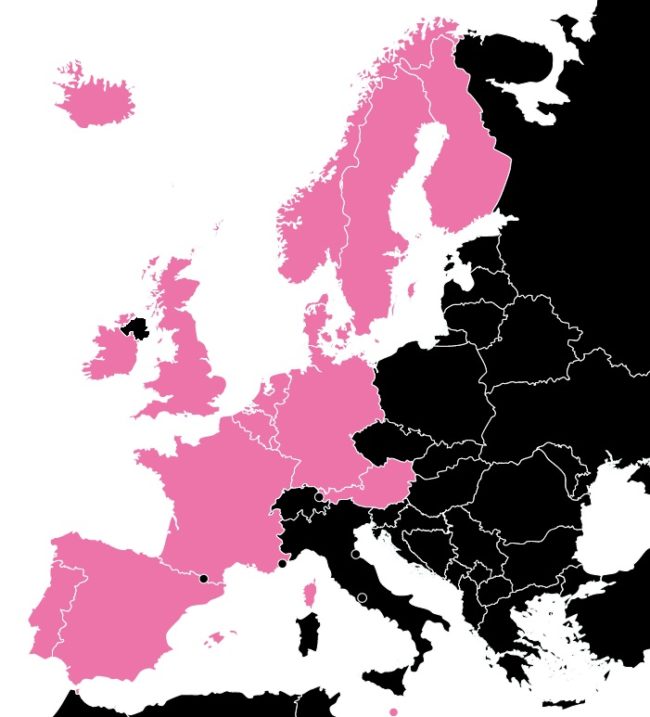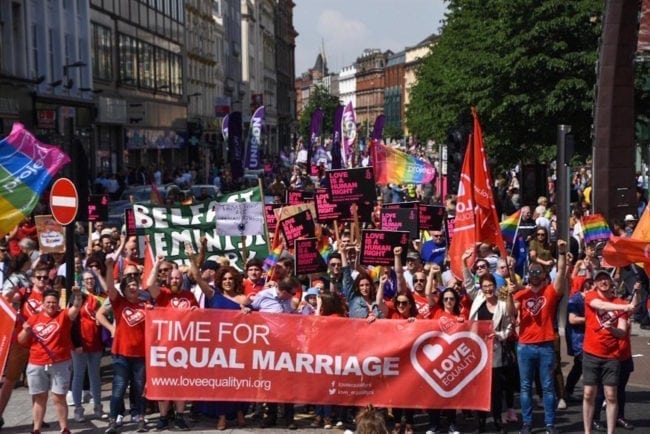Labour MP Ged Killen: Government’s LGBT Action Plan leaves Northern Ireland out in the cold

Ged Killen MP
Labour’s Ged Killen writes for PinkNews in response to the government’s LGBT Action Plan.
This week the Government unveiled its LGBT Action Plan following the results of the National LGBT Survey which collected the responses of 108,000 people living in the UK who self-identified as LGBT+.
This was a mammoth undertaking, and it is the largest single survey of LGBT+ people conducted anywhere in the world. From its results the Government produced an LGBT Action Plan consisting of 75 recommendations to improve the lives of LGBT people and £4.5 million worth of funding to support LGBT charities and civil society groups.
I welcome both the report and the Action Plan – these are the kinds of proactive steps which will help break down the barriers that remain in front of us on the journey to equality.
However, there was one major omission from the Government’s Action Plan.
Northern Ireland.
Northern Ireland is only mentioned once in the Action Plan. It is not mentioned in relation to a recommendation for action, but in caveat. This caveat is that the majority of the recommendations put forward in the Action Plan are for England only and that none of the £4.5 million of funding will be sent to support LGBT charities and civil society in Northern Ireland.
It’s simply not good enough.

Northern Ireland is increasingly isolated in Western Europe by banning equal marriage
Buried in the research report a 304 page document which presented the findings of the National LGBT Survey used to inform the Action Plan we find out that proportionally LGBT+ people from Northern Ireland were the least likely to participate in the National LGBT Survey and that trans people in Northern Ireland were the most likely to have undergone or been offered conversion therapy.
As part of the evidence collected a gay man from Northern Ireland is quoted as saying: “Living in Northern Ireland, LGBT people are automatically treated differently than in other areas of the UK. Our ‘government’ when functioning uses petitions of concern to block legislation that would bring equality to LGBT people. I face discrimination every day. It can be comments, looks or exclusion from things. Things are getting better in NI, but very slowly.”
Things are getting better in Northern Ireland but progress is too slow and there is roadblock in the way of achieving same-sex marriage.
It is therefore not good enough for the Government to brush over Northern Ireland. In the Action Plan the Government sets out that they will support efforts to repeal laws discriminating against LGBT people in commonwealth countries, and that they are offering a £5.6 million programme delivered through civil society organisations to advance the legal equality and rights of all Commonwealth citizens, regardless of gender, sex, sexual orientation or gender identity.

A march for equal marriage in Northern Ireland (Getty)
This is welcome and I fully endorse these efforts, however what moral authority can the UK Government claim to have when it will not make efforts to repeal laws discriminating against LGBT people in Northern Ireland nor is it offering funding to civil society organisations to advance the legal equality and rights in a part of our own country?
The Government’s attitude to Northern Ireland is very do as well say, but not as we do.
Yesterday I asked Penny Mordaunt, the Cabinet Minister responsible for Equalities, what practical support the Government could offer people in Northern Ireland to make sure rights are advanced. Unfortunately, her response was unsatisfactory pointing again to Parliament to act rather than bringing forward meaningful action from the Government.
I will continue to campaign along with other MPs who support marriage equality in Northern Ireland for this right to be extended. However as highlighted in the Government’s Action Plan we need societal change as well.
I have asked the Government to produce a reanalysis of its National LGBT Survey so that we can look at the responses for Northern Ireland separately to try and dig deeper into the challenges that face LGBT+ people there. I have also asked for them to make the anonymised data public so that civil society organisations across the UK can use this resource to build better packages of support for LGBT+ people.
While the Government left out Northern Ireland in its LGBT Action Plan I hope that the data gathered in the survey and continued efforts by campaigners will keep pushing us in the right direction. Things are getting better and hopefully this will help us pick up the pace

